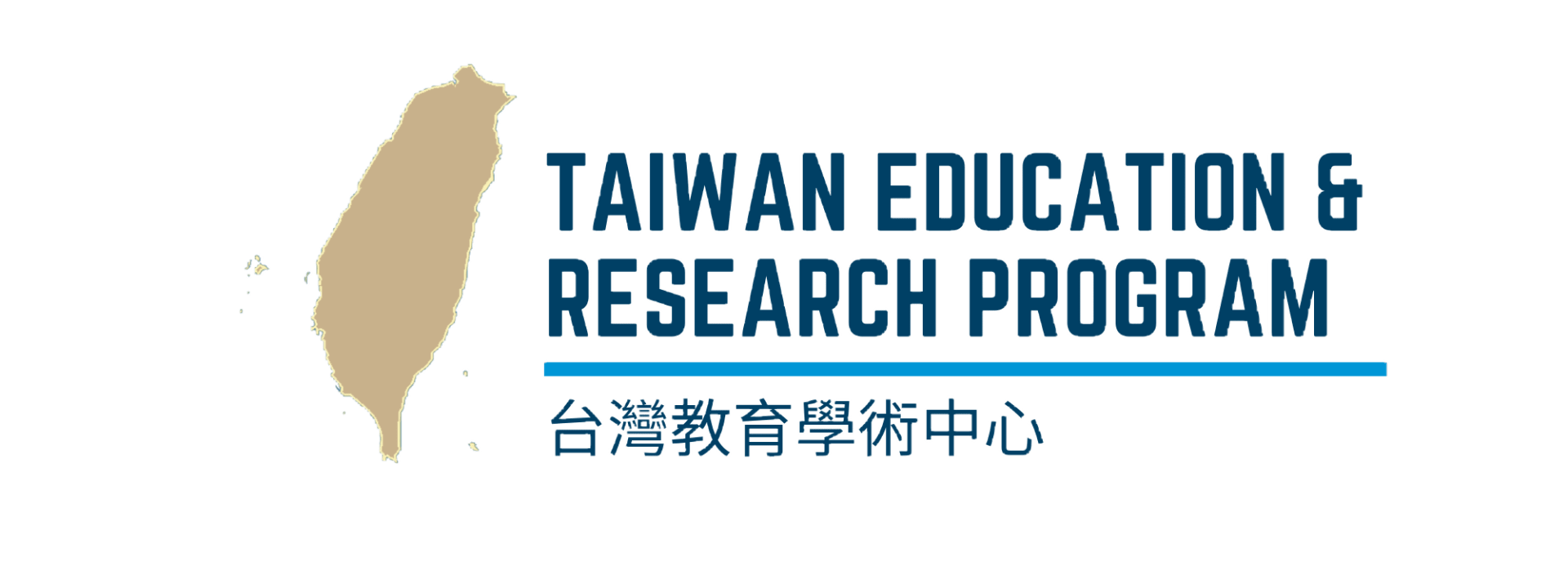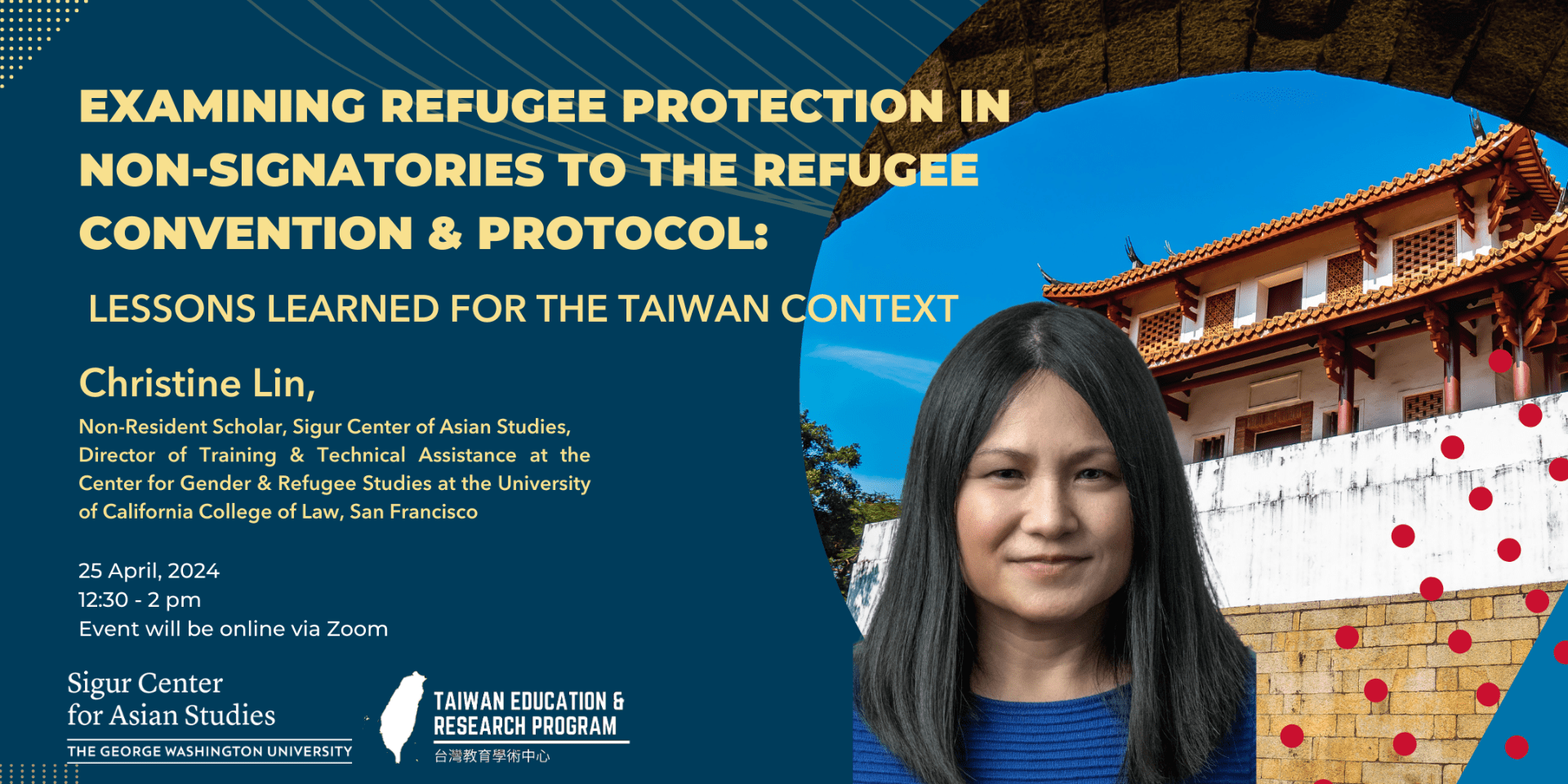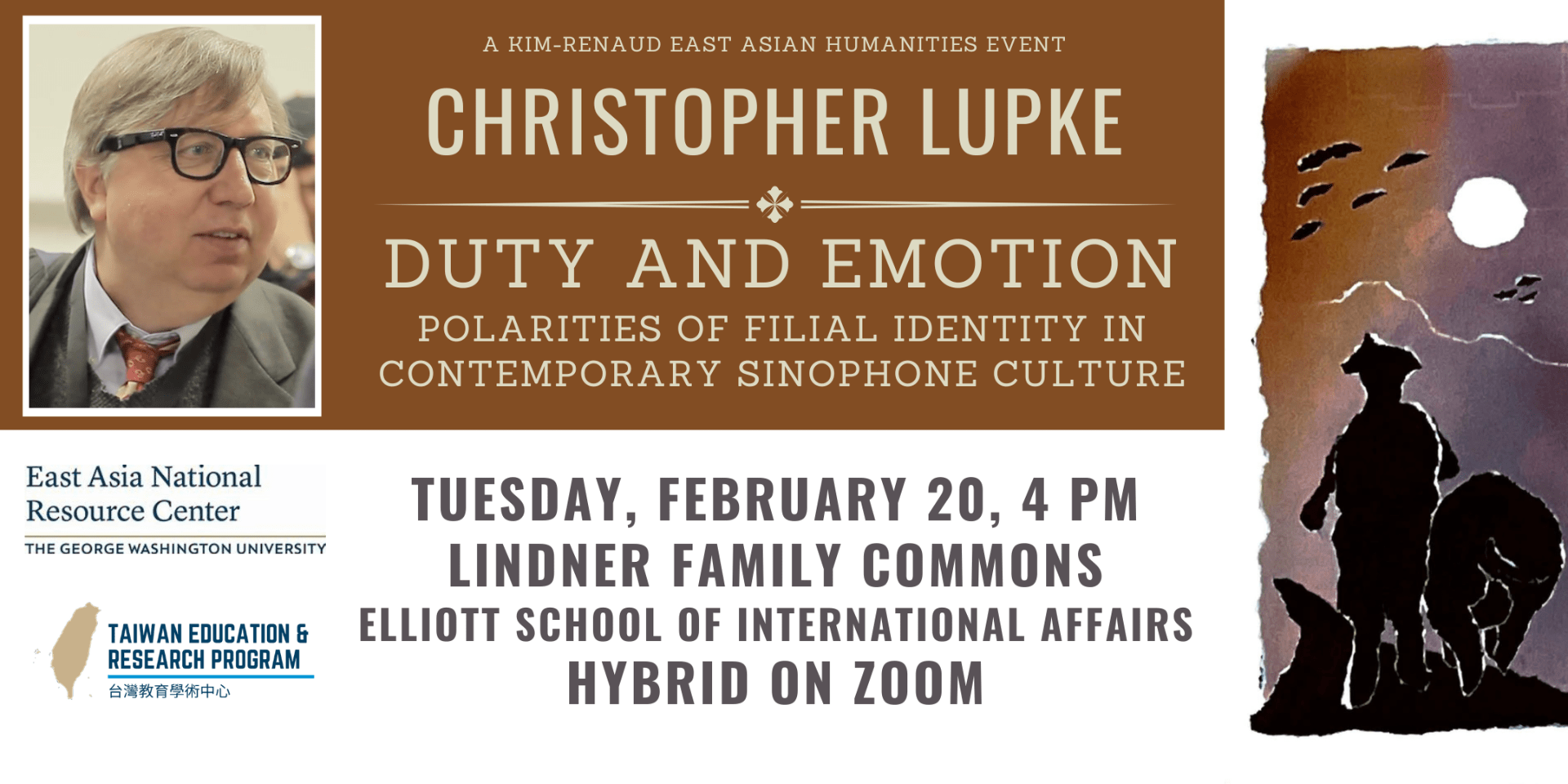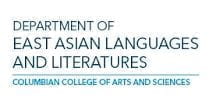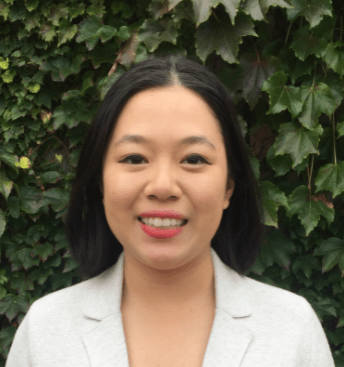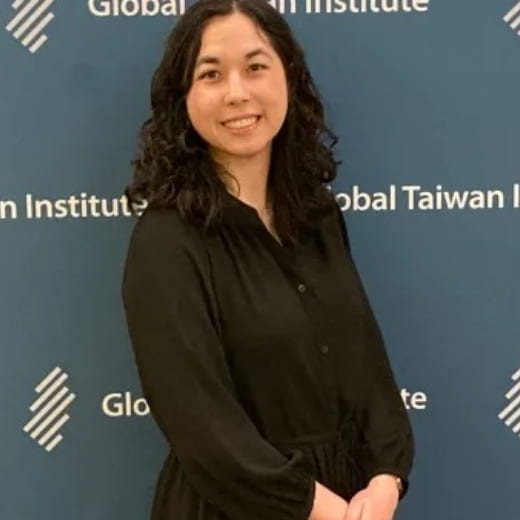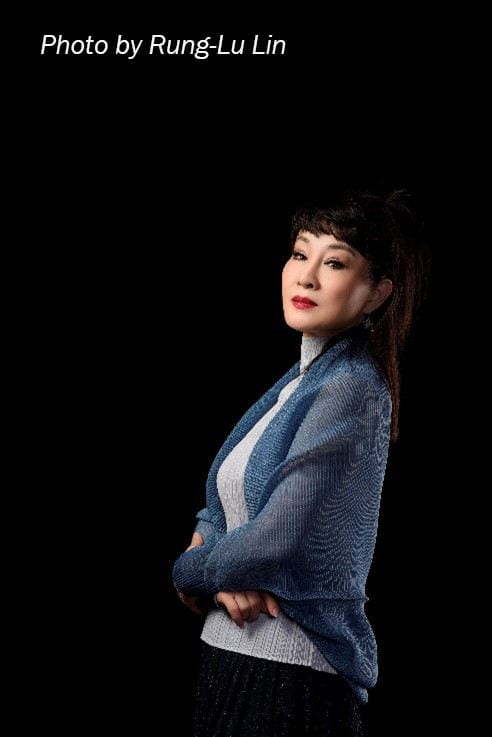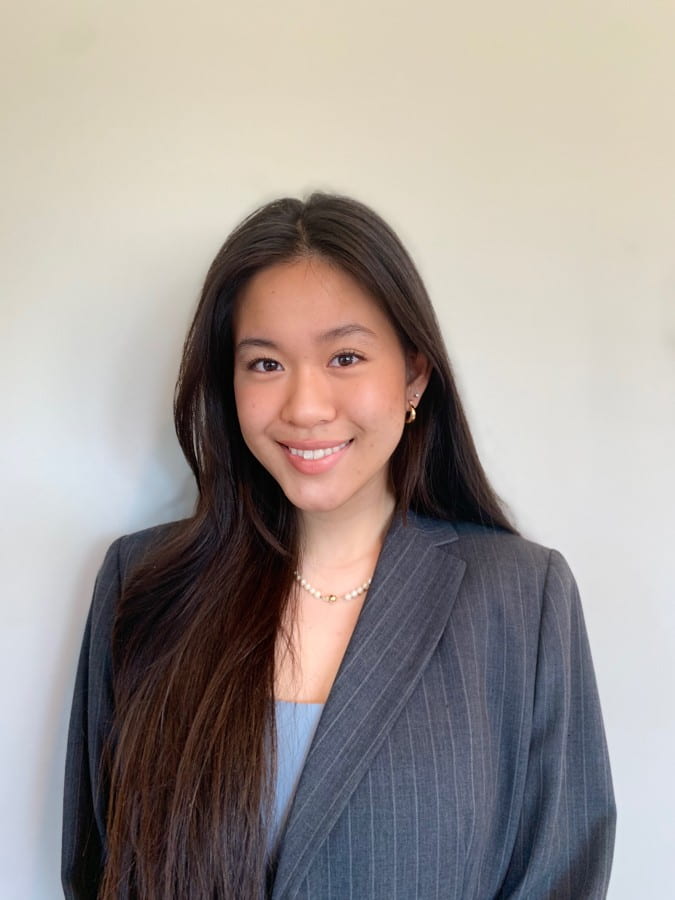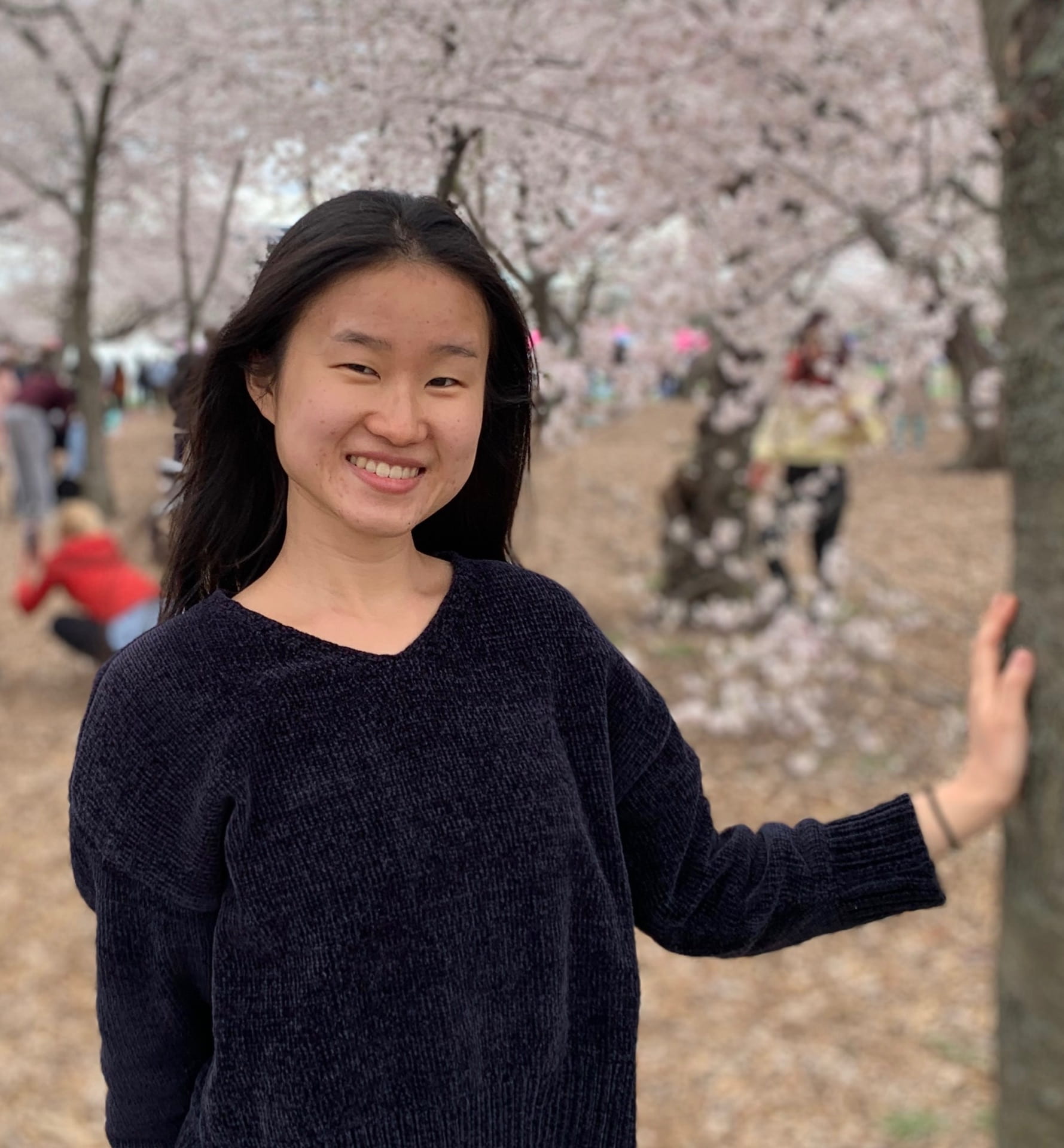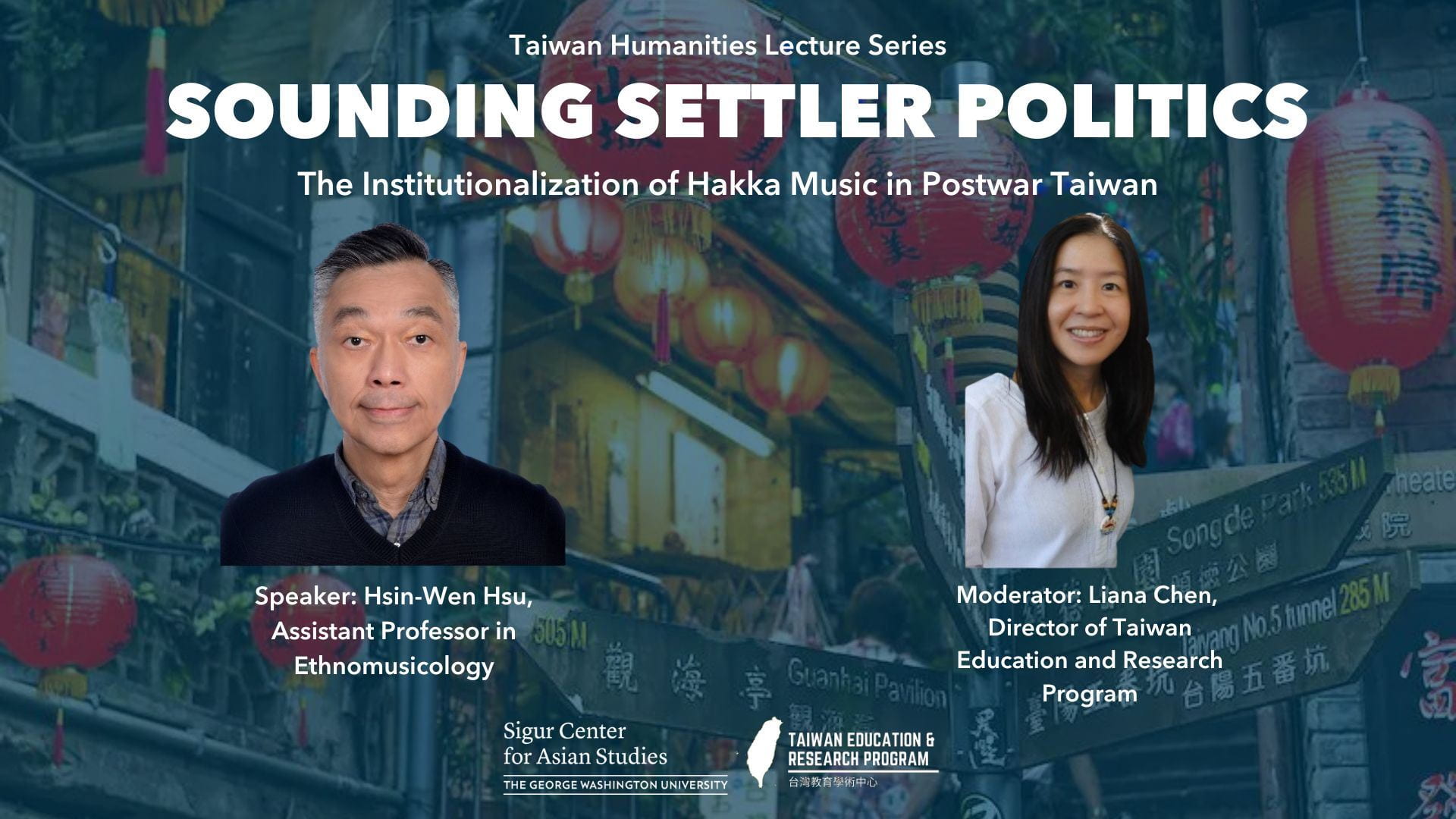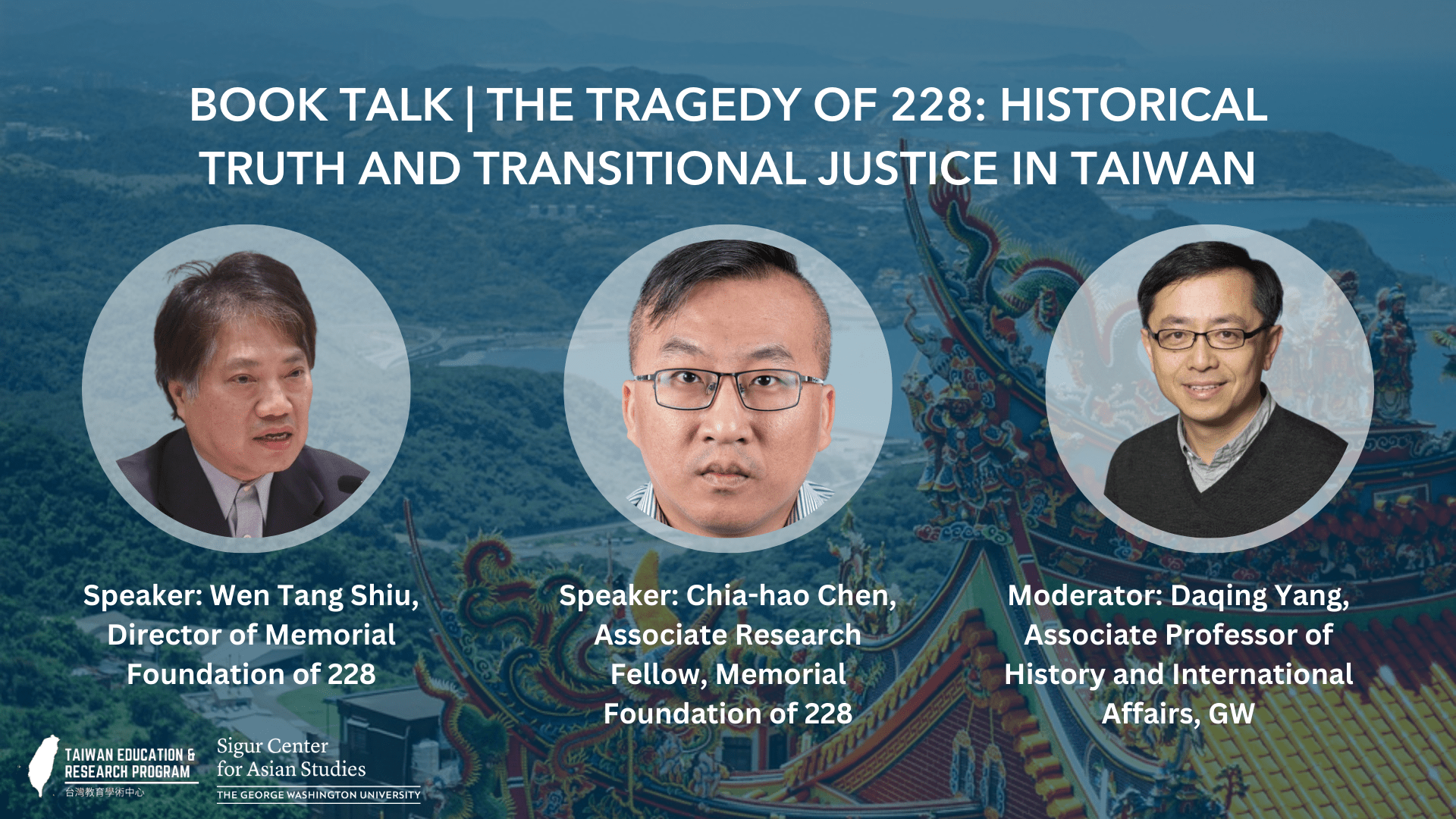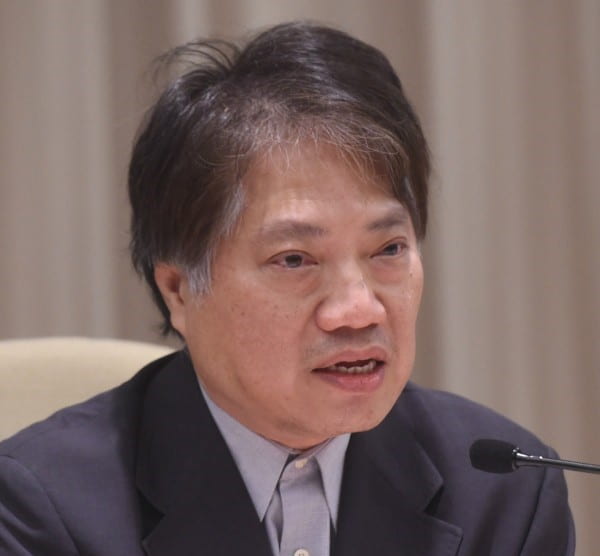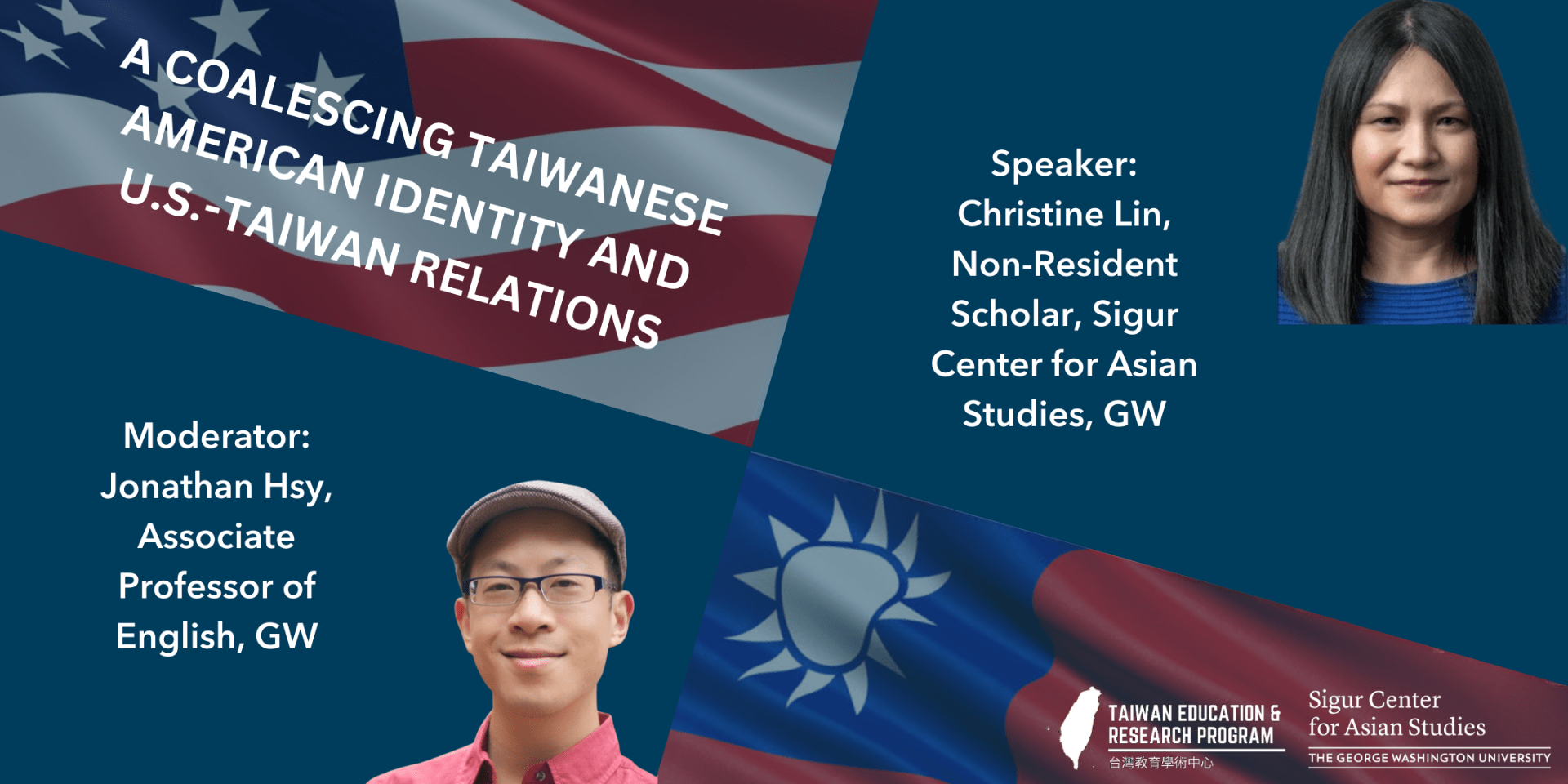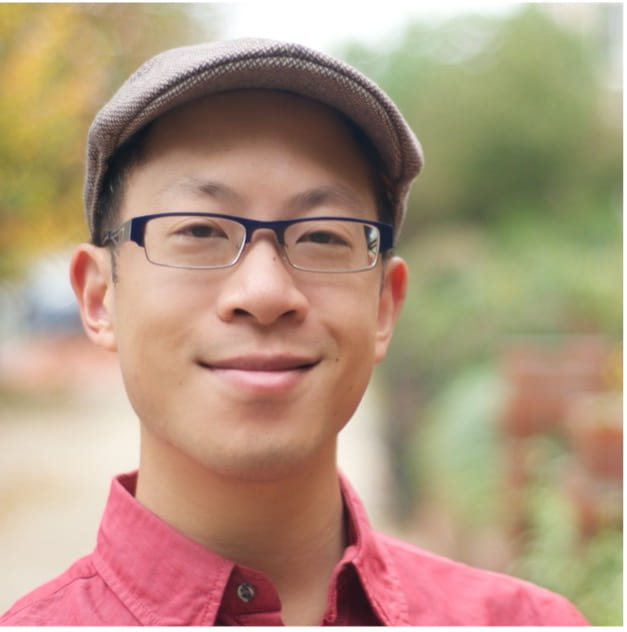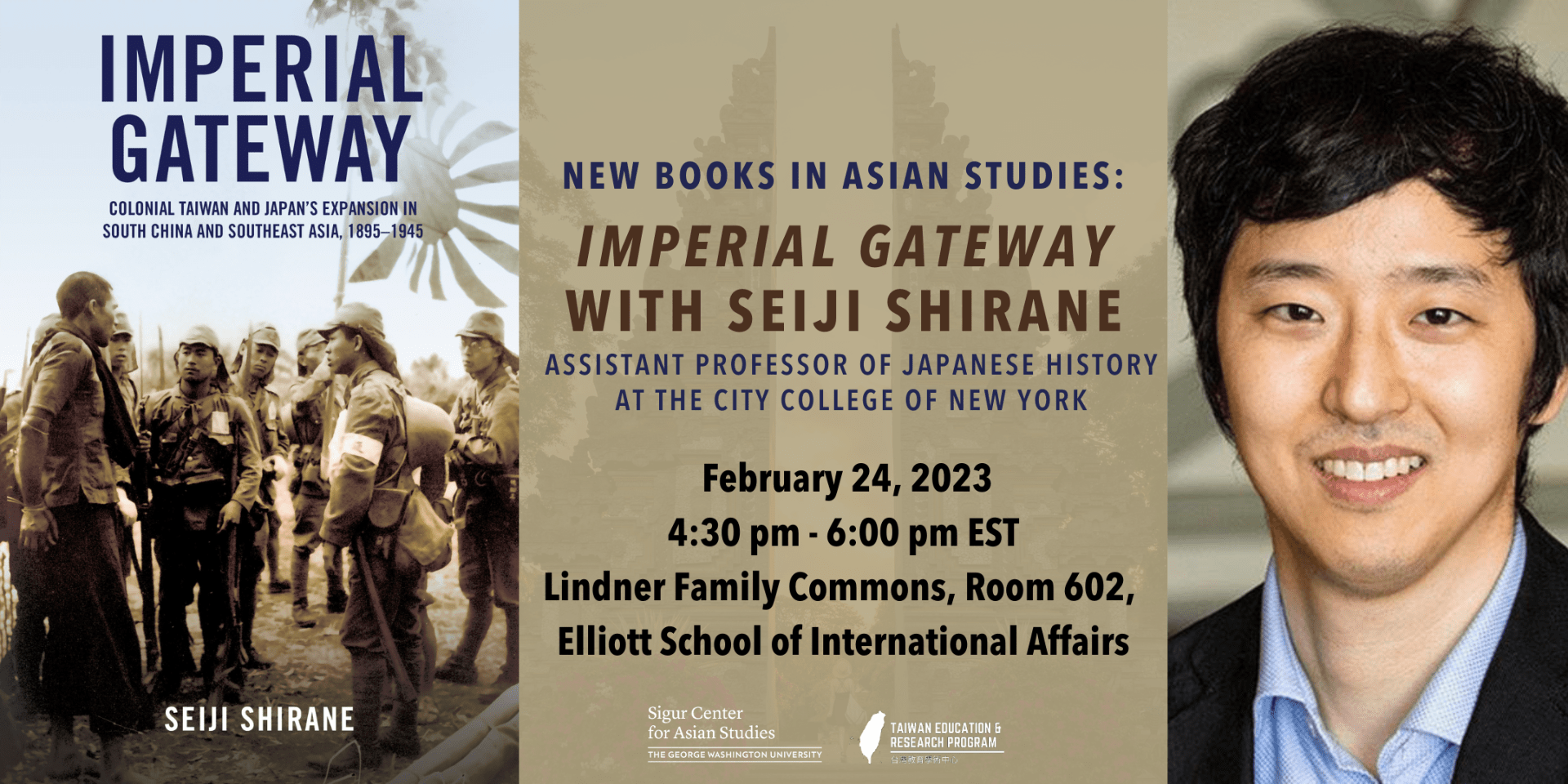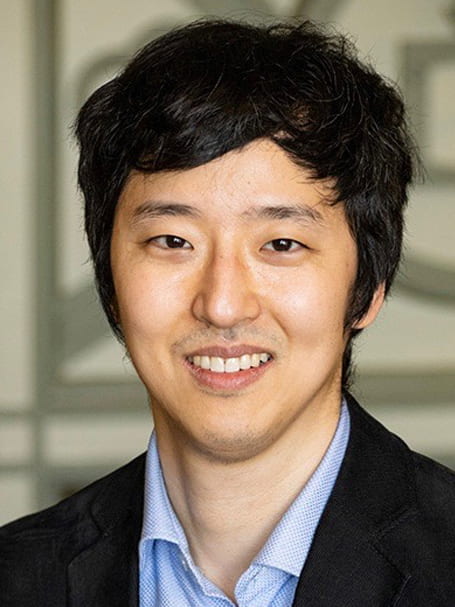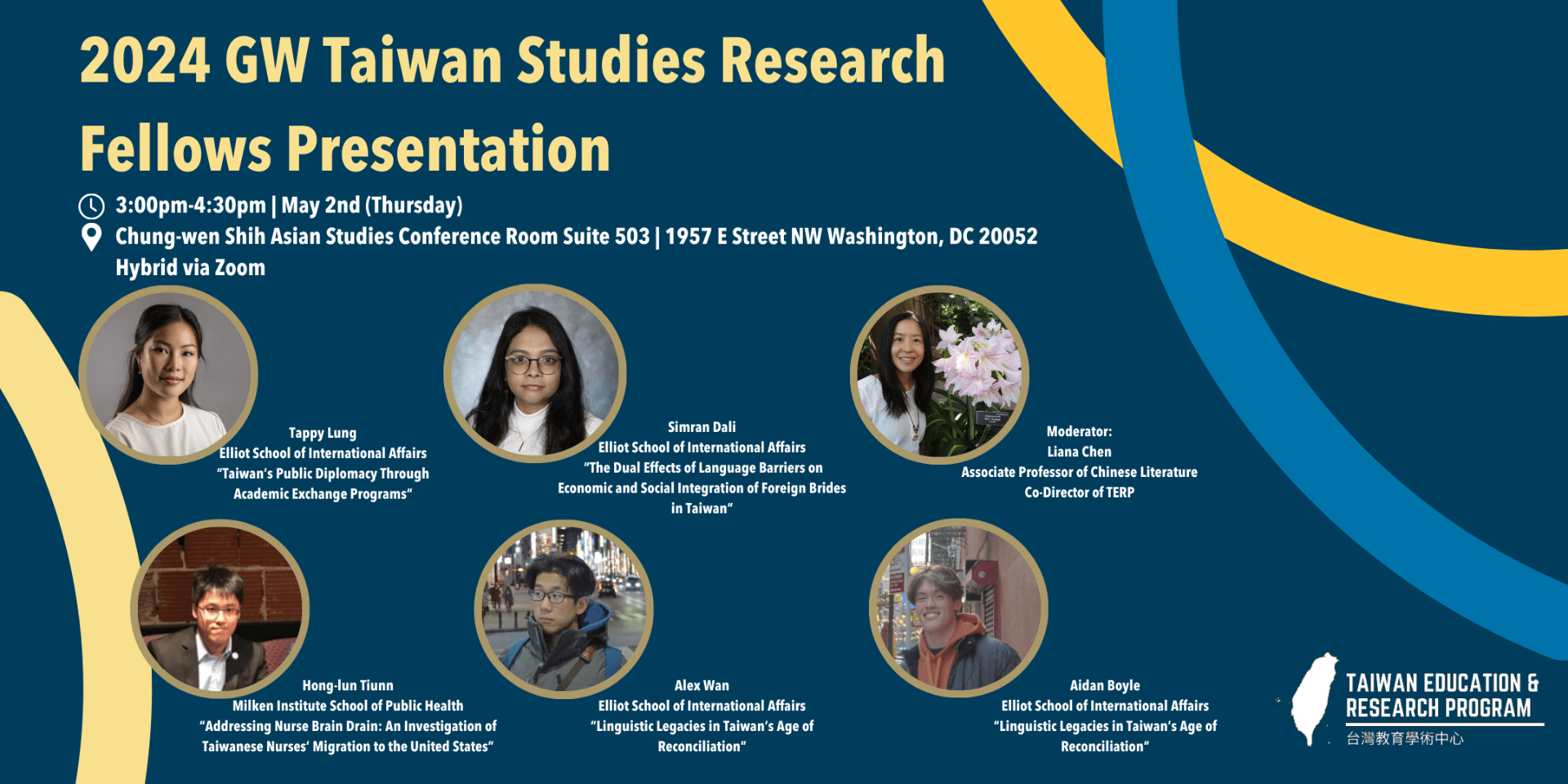
2024 GW Taiwan Studies Research Fellows Presentation
Thursday, May 2nd, 2024
3:00 PM – 4:30 PM ET
Chung-wen Shih Asian Studies Conference Room Suite 503
1957 E Street NW Washington, DC 20052
Hybrid via Zoom
The GW Taiwan Studies Research Fellows Program, supported by the Taiwan Studies Initiative (TSI) and hosted by the Taiwan Education and Research Program (TERP), encourages outstanding graduate and undergraduate students to conduct research on any aspect of Taiwan by providing essential resources and mentoring for their study. Selection is based on the strength of the proposed project, as well as academic performance, especially in coursework on Taiwan. The Program is designed to provide students with the opportunity to connect with the GW Taiwan studies faculty members, conduct research, participate in Taiwan-related programming, and receive mentorship in the field of Taiwan affairs.
About
Speakers:
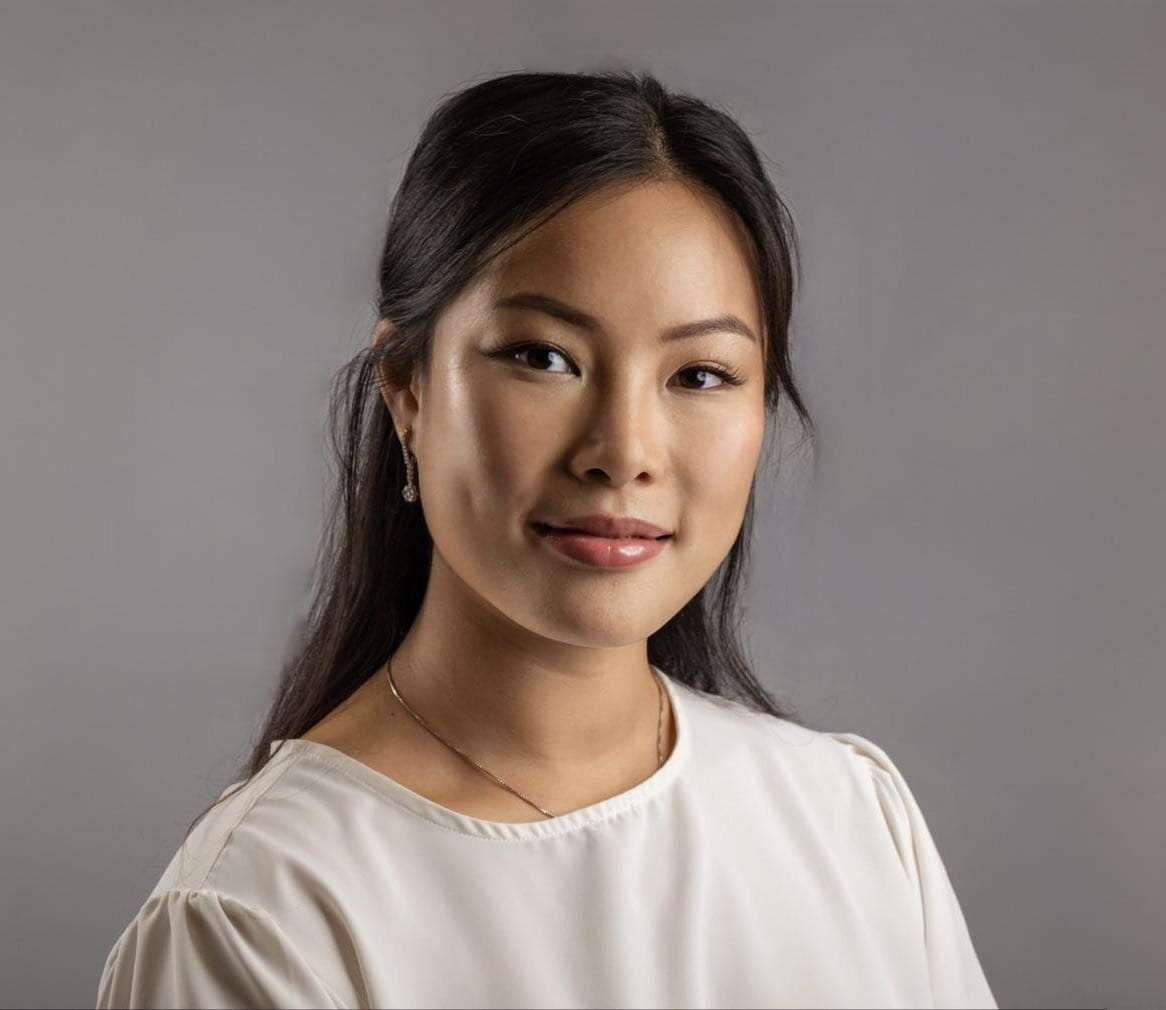
Tappy Lung is from New York and is a senior undergraduate student at the Elliott School of International Affairs. She is double majoring in International Affairs and Political Communication, concentrating on Asian identities, politics, diplomacy, and development. During her TERP Fellowship, Tappy will be surveying the experiences of foreign students in Taiwan to understand the role of academic exchange in Taiwan’s public diplomacy.
Faculty Advisor: Christopher Teal
Research Project: “Taiwan’s Public Diplomacy Through Academic Exchange Programs“

Hong-Lun Tiunn, MPH, is a research associate at Mullan Institute for Health Workforce Equity and a Health Policy Ph.D. student at the Milken Institute School of Public Health. His research interest focuses on the labor policy issue of healthcare workforces. He is involved in research projects related to international migration of Taiwanese nurses to the US. Before joining GW, he served multiple years as chief of staff for a member of the Taiwanese parliament and helped to establish labor unions for Taiwanese healthcare professionals. He also holds a certification as an occupational hygienist.
Faculty Advisor: Patricia (Polly) Pittman
Research Project: “Addressing Nurse Brain Drain: An Investigation of Taiwanese Nurses’ Migration to the United States”
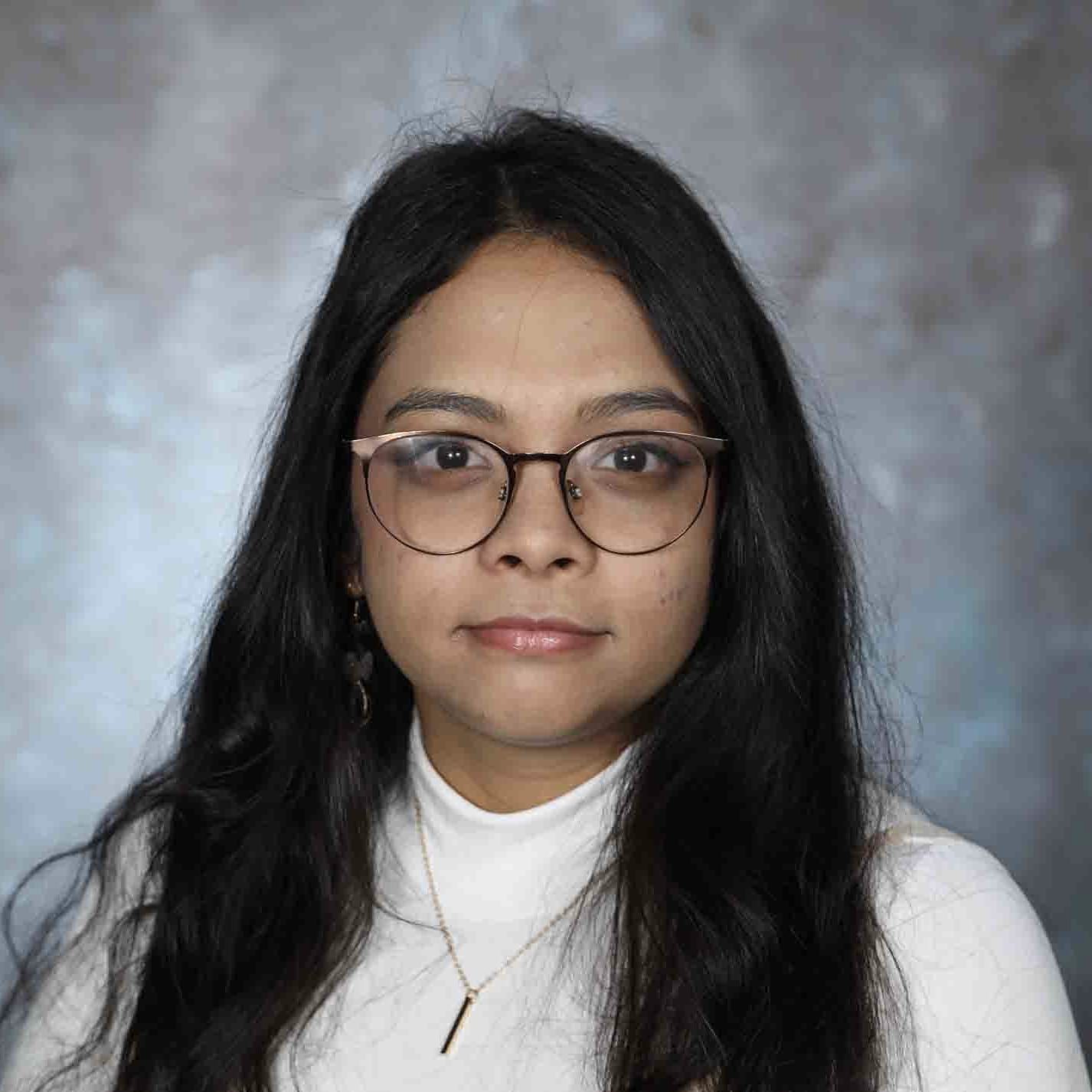
Simran Dali is a first-year graduate student at the Elliott School of International Affairs, George Washington University, pursuing an M.A. in Asian Studies with a thematic specialization in Taiwan/China and a professional specialization in Global Gender Policy. Simran holds a Bachelor of Arts degree in International Studies from Dickinson College, with a concentration in East Asia. With a background in health studies and an internship at the US-Taiwan Business Council, Simran’s academic journey reflects a commitment to understanding and addressing social, economics, and health issues, particularly in the context of East Asia. Proficient in English, Nepali, Marathi, Hindi, and possessing basic knowledge of French and Mandarin. Simran hopes to bring a multilingual perspective to her research on language barriers impacting the socioeconomic integration of foreign brides in Taiwan.
Faculty Advisor: Kuniko Ashizawa
Research Project: “The Dual Effects of Language Barriers on Economic and Social Integration of Foreign Brides in Taiwan“
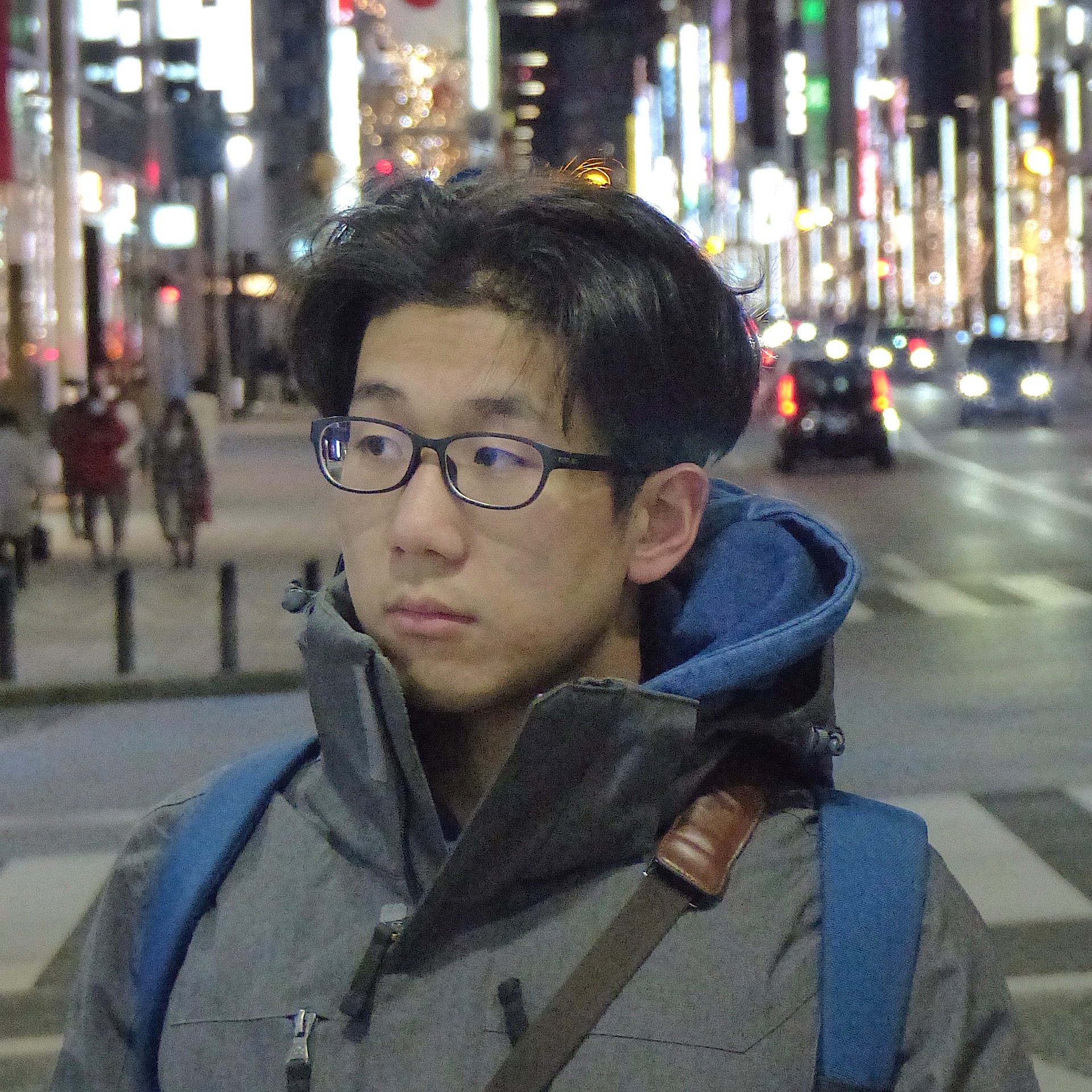
Alex Wan is a sophomore undergraduate at the George Washington University majoring in International Affairs and Art History with a concentration in Asia and Contemporary Cultures and Societies. Born in Vancouver, he grew up in Beijing before attending school in Maryland. His interests include collective memory and nationalism in China, and of historic Taiwanese language policy. In his free time, he enjoys swimming, traveling, and skiing. Alex will be collaborating with Aidan Boyle on the research project, “Linguistic Legacies in Taiwan’s Age of Reconciliation”, advised by James Evans.
Faculty Advisor: James Evans
Research Project: “Linguistic Legacies in Taiwan’s Age of Reconciliation”

Aidan Boyle is a sophomore undergraduate student at the George Washington University pursuing a double major in International Affairs with a concentration in Conflict Resolution and Chinese Language and Literature. Born and raised in Taipei, Aidan moved to Washington, DC as a freshman in college to pursue higher education. Aidan will work alongside Alex Wan to research Kuomintang language policies and their effects on voter sentiment in the 2024 Taiwanese presidential election. His interests include modern Taiwanese history, cross-strait relations, and the Taiwanese transitional justice movement. Outside of the classroom, he enjoys lifting weights and playing rugby. Aidan will be collaborating with Alex Wan on the research project, “Linguistic Legacies in Taiwan’s Age of Reconciliation”, advised by James Evans.
Faculty Advisor: James Evans
Research Project: “Linguistic Legacies in Taiwan’s Age of Reconciliation”
Moderator
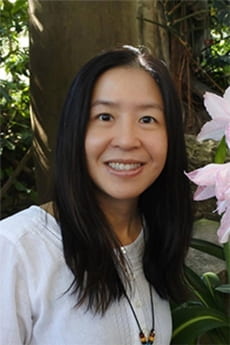
Liana Chen is Associate Professor of Chinese and International Affairs at George Washington University. She is the Director of the Taiwan Education and Research Program. Chen is the author of Literati and Actors at Work: The Transformations of Peony Pavilion on Page and On Stage in the Ming and Qing Dynasties (Taipei: National Taiwan University Press, 2013) and Staging for the Emperors: A History of Qing Court Theatre, 1683-1923 (Amherst, New York: Cambria Press, 2021). Liana Chen’s areas of teaching and research focus on Chinese drama and theatre, Chinese literature of the Ming and Qing dynasties, and Taiwanese theatre, literature and film. Liana Chen’s research has been supported by the Foundation for Development of Chinese Culture (Taiwan), The American Council of Learned Societies, and Sigur Center for Asian Studies.
